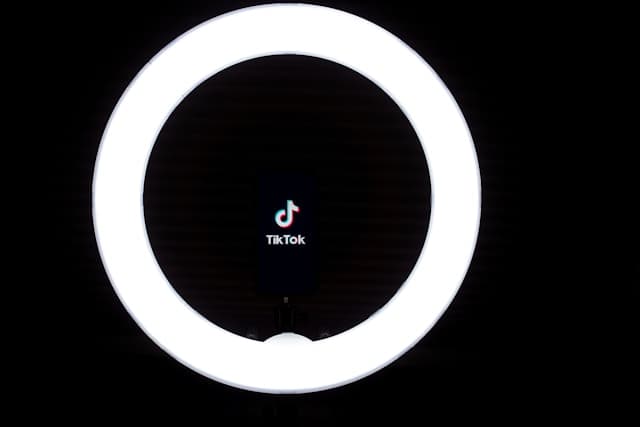
How AI Copilots Transform Social Media Marketing
.jpg)
Summary
The emergence of AI copilots in social media marketing has revolutionized brand engagement and interaction, offering businesses intelligent tools to streamline operations and enhance customer experiences. These advanced assistants leverage generative AI, machine learning, and natural language processing (NLP) to automate tasks, optimize marketing strategies, and provide real-time insights. By integrating AI copilots, brands are improving efficiency, enhancing personalization, and gaining a competitive advantage in the digital marketplace.
AI copilots are particularly valuable for their ability to analyze consumer behavior, deliver predictive analytics, and automate repetitive tasks, allowing marketers to focus on strategic decision-making. Their personalization capabilities cater to consumer preferences, making tailored marketing experiences a necessity rather than a luxury. However, these advancements come with challenges, including concerns around data privacy, algorithmic bias, and compliance with evolving regulations. Businesses must navigate these ethical considerations to maintain consumer trust and ensure fair AI-driven decision-making.
Looking ahead, AI copilots are poised to further transform social media marketing through hyper-personalization and enhanced data-driven insights. Brands that effectively harness these tools will drive stronger engagement, improve customer relationships, and stay ahead in the evolving digital landscape.
Evolution of AI in Marketing
The integration of AI into marketing has led to a new era of efficiency and personalized engagement. Initially, AI was used to automate repetitive tasks and analyze large datasets, enabling marketers to make faster and more accurate decisions. Over time, the role of AI has expanded significantly.
1. The Rise of AI Technologies
The adoption of AI in marketing has surged, with reports indicating that over 69% of marketers are incorporating AI into their strategies. The market value of AI-driven marketing is projected to rise from $12 billion in 2020 to $108 billion by 2028, reflecting increasing reliance on AI tools for business growth.
2. AI's Role in Consumer Engagement
AI-powered platforms like Netflix have successfully leveraged AI to provide highly personalized recommendations, reinforcing the expectation that brands tailor experiences to individual users. A study found that 59% of consumers appreciate brands utilizing their purchase histories to enhance shopping experiences.
3. AI in E-Commerce and Marketing
AI is playing a critical role in e-commerce by automating inventory management, price optimization, and real-time customer engagement. As businesses adopt AI-powered solutions, they gain operational efficiencies and a sharper competitive edge.
4. The Future of AI in Marketing
Projections indicate that within the next three years, 78% of marketers will incorporate AI automation into over a quarter of their tasks. The future of AI-driven marketing lies in deeper automation, predictive analytics, and advanced personalization.
Functionality of AI Copilots in Social Media
AI copilots enhance efficiency and effectiveness across various marketing functions, particularly in social media management. These tools utilize machine learning, NLP, and predictive analytics to streamline tasks and optimize brand interactions.
1. Real-Time Assistance
AI copilots provide instant support by generating content suggestions, automating repetitive tasks, and delivering data-driven insights to enhance decision-making. In content creation, these tools assist with drafting posts, writing ad copy, and optimizing campaign strategies.
2. Personalization and Adaptability
AI copilots analyze user interactions to deliver personalized recommendations. These systems continuously learn from engagement patterns, ensuring that content remains relevant and valuable.
3. Automation of Social Media Strategies
AI copilots optimize campaign execution by analyzing engagement metrics, determining the best posting times, and adjusting content strategies based on audience sentiment. Brands can fine-tune their messaging in real time to align with consumer interests.
4. Ethical Considerations and Compliance
As AI copilots rely on real-time data, organizations must prioritize ethical AI usage, mitigate bias, and adhere to data protection regulations. Implementing transparent AI frameworks is essential for ensuring accountability and fairness in AI-driven marketing.
Key Benefits of AI Copilots in Social Media Marketing
AI copilots provide a wealth of advantages that enhance marketing efficiency, engagement, and personalization.
1. Predictive Insights for Better Strategy
AI copilots analyze social media interactions to provide predictive insights into customer behavior, helping brands anticipate trends and optimize content accordingly.
2. Streamlined Social Media Operations
By automating content scheduling, performance tracking, and audience engagement, AI copilots enable social media managers to focus on creative and strategic tasks, reducing time spent on manual operations.
3. Enhanced Data-Driven Decision Making
With real-time analytics, AI copilots help businesses track engagement metrics, identify trends, and refine campaigns for better performance.
4. Personalized Customer Experiences
AI copilots deliver tailored marketing experiences by analyzing user behavior, purchase history, and engagement patterns, improving conversions and customer satisfaction.
5. Improved Content Moderation and Brand Safety
AI copilots can automatically detect and remove inappropriate content, ensuring brand compliance with community guidelines and fostering a safe digital environment.
6. Automation of Campaign Management
AI copilots assist with campaign execution by handling A/B testing, optimizing ad spend, and automating reporting, leading to higher marketing ROI.
7. Advanced A/B Testing Capabilities
By running AI-driven A/B tests on ad variations, headlines, and post timing, brands can determine the most effective strategies and continuously refine their approach.
Case Studies: AI in Social Media Marketing
Overview of Social Media Case Studies
Case studies provide valuable insights into how brands leverage AI copilots for marketing success. These in-depth analyses highlight both strategic achievements and challenges, offering marketers actionable lessons for future optimization.
Importance of Case Studies
Social media case studies offer key benefits for brands and agencies. Companies that submit case studies for recognition gain validation for marketing innovations, attract potential partners, and enhance public relations. Meanwhile, agencies use case studies to showcase their expertise, differentiate themselves in the market, and strengthen client relationships by demonstrating successful AI implementations.
Crafting Effective Case Studies
A well-structured case study follows a systematic approach:
1. Introduction
Capturing attention with a compelling campaign overview is essential. Brands should clearly present themselves and explain the case study’s relevance to social media marketing professionals.
2. Context and Objectives
Providing background information on campaign goals, challenges, and opportunities offers context for the strategies employed.
3. Strategy Execution
Marketers should detail the AI-driven strategies used, supported by visuals of key campaign elements. Acknowledging both successes and setbacks enhances credibility and provides valuable learning points.
4. Data-Driven Insights
Metrics are crucial for demonstrating impact. Performance data, return on investment (ROI), and engagement statistics validate the effectiveness of AI-driven strategies. For example, Coca-Cola’s "Using Your Voice to Share a Coke" campaign leveraged Voice AI technology, boosting customer engagement and setting a new standard for voice-based marketing.
Future Trends in AI-Powered Social Media Marketing

1. The Rise of Generative AI
Generative AI is set to play a pivotal role in social media marketing, enabling brands to create tailored content across multiple formats. AI-driven content generation will enhance engagement by personalizing social media experiences in real time, making marketing efforts more dynamic and user-centric.
2. Hyper-Personalization in Marketing
As AI technology advances, hyper-personalization will redefine digital marketing strategies. AI-powered tools will analyze real-time user behavior to deliver highly customized content, fostering deeper brand-consumer relationships. Studies indicate that personalized marketing enhances customer experience and significantly improves engagement rates.
3. Enhanced Data Utilization
AI copilots will enable brands to efficiently process vast amounts of data, uncover trends, and optimize marketing strategies based on predictive insights. This data-driven approach will streamline content creation and improve advertising effectiveness, ensuring marketing efforts remain relevant and impactful.
4. Augmented Reality (AR) and Virtual Influencers
Emerging AI-powered trends, such as augmented reality (AR) experiences and virtual influencers, will revolutionize consumer interactions. AR technology will allow users to visualize products in their environment, enhancing purchase confidence. Meanwhile, virtual influencers will offer brands new engagement opportunities while maintaining authenticity and relatability.
5. Addressing Data Privacy Concerns
As AI copilots advance, data privacy concerns will intensify. Businesses must implement robust governance frameworks to ensure compliance with regulations and maintain consumer trust. AI-driven transparency initiatives will be vital in addressing privacy issues while leveraging AI for marketing success.
Conclusion
AI copilots are reshaping social media marketing, providing brands with unparalleled efficiency, personalization, and automation. As AI technology evolves, businesses that embrace AI-powered solutions will gain a competitive edge, fostering stronger engagement and data-driven decision-making. However, companies must navigate ethical considerations, data privacy regulations, and consumer trust concerns to ensure responsible AI adoption.
Brands that leverage AI copilots for predictive analytics, automation, and hyper-personalization will be well-positioned to thrive in the evolving digital landscape.
To streamline your brand’s social media engagement and ensure timely, personalized interactions, try ReplyPilot. Powered by AI, ReplyPilot helps brands respond faster and more effectively across platforms, boosting engagement while saving valuable time. Don’t let your audience wait—start leveraging ReplyPilot today and watch your engagement rates soar!
Continue reading
More posts about social media engagement




